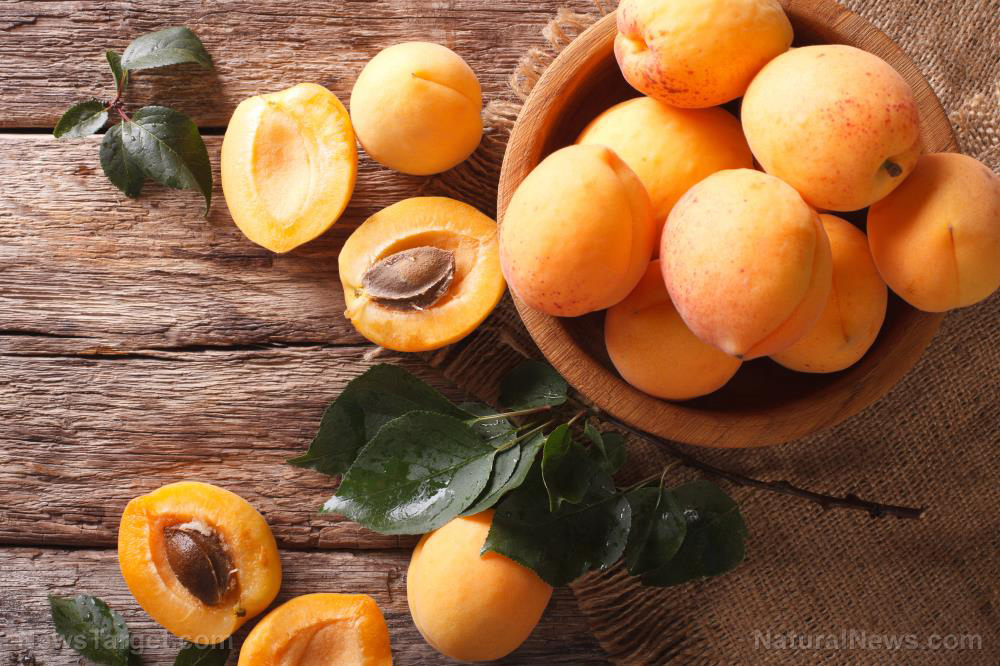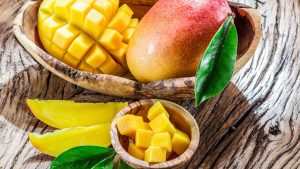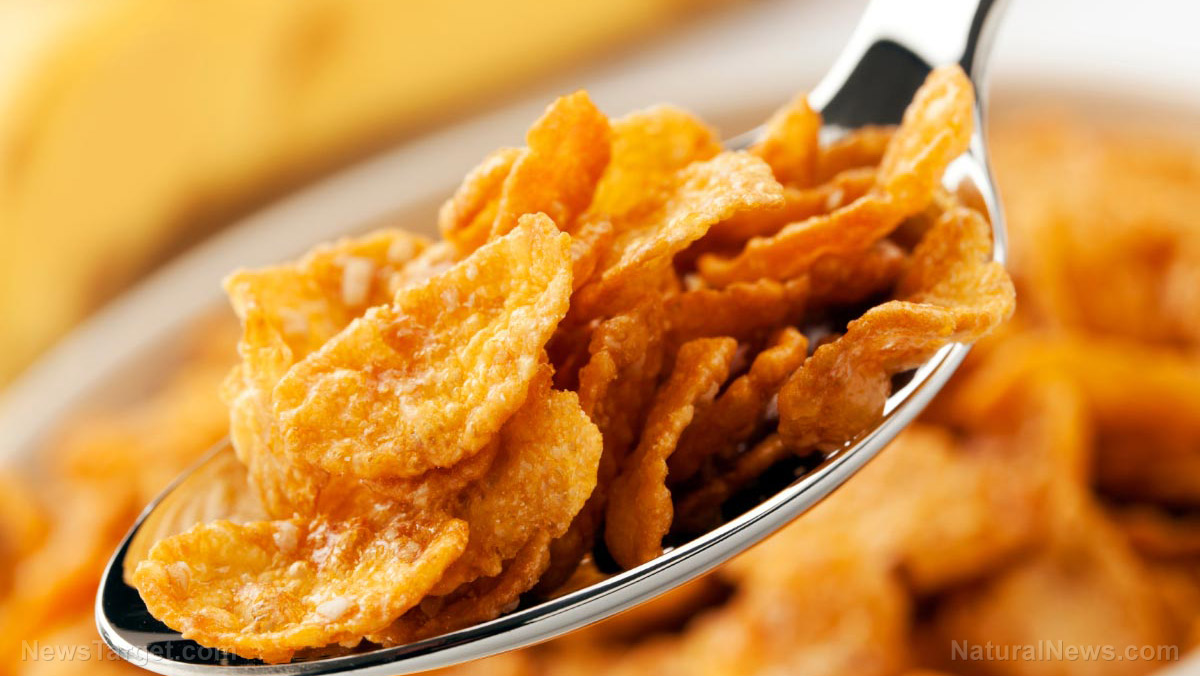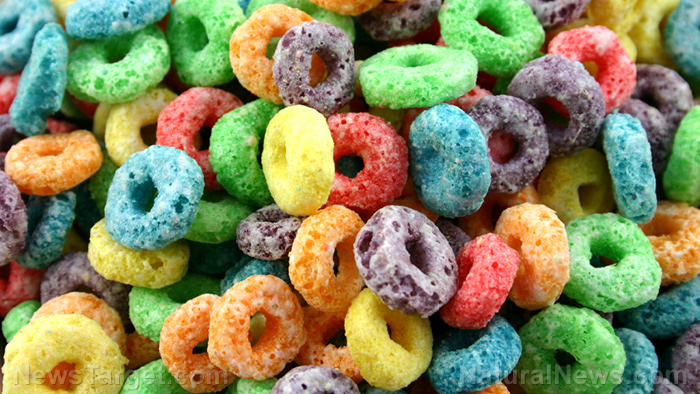Your go-to guide to the best low-carb fruits to eat while on the keto diet
11/25/2018 / By Zoey Sky

While the ketogenic (keto) diet was originally designed for individuals with neurological diseases such as epilepsy, it has now become a popular diet among people who want to lose weight effectively. But did you know that this diet requires you to eat low-carb fruits?
The proper ratio of fruits and vegetables
Since the keto diet strictly monitors your carb intake, you can’t overeat certain kinds of produce, especially fruits and vegetables. Carbs from whole produce are better compared to refined and processed foods, such as grains and legumes. However, carbs from fruits and vegetables are still counted as carbs.
To ensure the success of a keto diet, you need to monitor your carb intake. Fruits are full of healthy antioxidants, fiber, and vitamins, but they aren’t nutritionally equivalent to vegetables. If you’re on the keto diet, the preferred ratio of fruits and vegetables is “a single serving of fruit for every four to five cups of vegetables.”
Fruits have beneficial nutrients, but eating too many may still cause blood sugar problems and obesity, especially since fruits contain sugars like glucose and fructose. (Related: Experts dispel 5 myths and reveal benefits of low-carb, high-fat diets made famous by celebrities.)
You don’t have to avoid fruits entirely. When on the keto diet, you must consume both fruits and vegetables in moderation.
Low-carb and keto-friendly fruits
With the exception of lemons and lime, all fruits are calculated using half-cup portion sizes. Lemons and limes are calculated via the juice of a medium-sized fruit.
The low-carb fruits below can be used to make keto-friendly desserts, fat bombs (or small snacks that are full of fat and low in carbs that can be eaten as a quick meal or as a source of extra fuel), savory dishes, or smoothies. Alternatively, you can eat them as low-carb snacks on their own.

- Apples (½ cup, net carbs: 7) – Add variety to a keto diet by eating tart apples with the skin on.
- Apricot (½ cup, net carbs: 7) – Apricots are full of vitamin A.
- Avocado (½ cup, net carbs: 2) – Technically a berry, avocados are great for low-carb recipes.
- Blackberries (½ cup, net carbs: 3) – Low-carb blackberries are sweet, and they can be paired with avocado and coconut.
- Blueberries (½ cup, net carbs: 9) – Blueberries have a bit more carbs than blackberries, but you can use them in extreme moderation.
- Cantaloupe (½ cup, net carbs: 6) – Cantaloupes belong to the same family as squash and it can be used for desserts.
- Cherries (½ cup, net carbs: 8) – Cherries contain a unique combination of calcium, iron, and potassium.
- Coconut flesh (½ cup, net carbs: 7) – Use unsweetened coconut if you’re going to make desserts, fat bombs, or power balls.
- Cranberries (½ cup, net carbs: 4) – Cranberries are chock-full of vitamins C and E and fiber.
- Grapefruit (½ cup, net carbs: 8) – Grapefruits are a sweet-and-sour source of vitamin C.
- Honeydew (½ cup, net carbs: 7) – Honeydew is related to cantaloupe. This sweet fruit is full of vitamin C and it can help you stay hydrated.
- Lemon (Juice of 1 fruit, net carbs: 3) – Lemon is a versatile fruit that’s ultra low-carb and they’re rich in vitamin C. You can also use lemons to flavor water.
- Lime (Juice of 1 fruit, net carbs: 3) – Like lemons, fresh lime juice is low in carbs. Use limes to add zest to sweet or savory dishes or to flavor water.
- Nectarines (½ cup, net carbs: 6) – When using nectarines, always measure out portions. Don’t assume that a small piece is equal to half a cup of fruit.
- Oranges (½ cup, net carbs: 8) – You can combine oranges with coconut cream to make keto-friendly creamsicles.
- Papaya (½ cup, net carbs: 7) – Papayas are very soft, but you can chill them in the refrigerator so they’re easier to slice.
- Peach (½ cup, net carbs: 7) – Consumed in moderation, peaches are a low-carb source of B vitamins and fiber.
- Pineapple (½ cup, net carbs: 9) – Full of fiber, pineapples are also rich in natural sugar. Use this fruit in moderation to make occasional pineapple desserts.
- Plum (½ cup, net carbs: 8) – Plums are juicy and you can use them to add some sweetness and flavor to desserts.
- Raspberries (½ cup, net carbs: 3) – Raspberries can be used for desserts, fat bombs, or smoothies.
- Strawberries (½ cup, net carbs: 5) – Strawberries contain a bit more carbs than blackberries and raspberries, but you can use them for desserts or smoothies.
- Starfruit (½ cup, net carbs: 3) – A starfruit (or carambola) can be eaten whole. The fruit is also full of vitamin C and antioxidants.
- Tomatoes (½ cup, net carbs: 2) – Tomatoes are considered fruits, and you can eat them roasted or sauced.
- Watermelon (½ cup, net carbs: 6) – Keto dieters tend to avoid watermelon because of its high sugar content, but eaten in moderation, watermelon is almost as low-carb as strawberries.
High-carb fruits to avoid
These fruits are full of nutrients, but they also contain a lot of carbs, which makes them hard to use when you’re on the keto diet.

- Banana – ½ cup, net carbs: 15
- Dates – ½ cup, net carbs: 52
- Dried cranberries – ½ cup, net carbs: 47
- Fig – ½ cup, net carbs: 19
- Kiwi – ½ cup, net carbs: 15
- Grapes – ½ cup, net carbs: 13
- Kumquats – ½ cup, net carbs: 11
- Mango – ½ cup, net carbs: 11
- Passionfruit – ½ cup, net carbs: 16
- Pear – ½ cup, net carbs: 10
- Persimmon – ½ cup, net carbs: 17
- Pomegranate – ½ cup, net carbs: 16
- Raisins – ½ cup, net carbs: 54
- Tangelos – ½ cup, net carbs: 12
- Tangerine – ½ cup, net carbs: 11
If you want to try the keto diet, keep these two lists in mind when planning low-carb meals.
Read more articles about low-carb fruits at Fruits.news.
Sources include:
Submit a correction >>
Tagged Under:
Diets, Fresh, fruits, grocery, keto diet, ketogenic diet, low-carb, low-carb fruits, natural health, nutrition, organics, phytonutrients, slender
This article may contain statements that reflect the opinion of the author
RECENT NEWS & ARTICLES
COPYRIGHT © 2017 TOP 10 GROCERY SECRETS





















